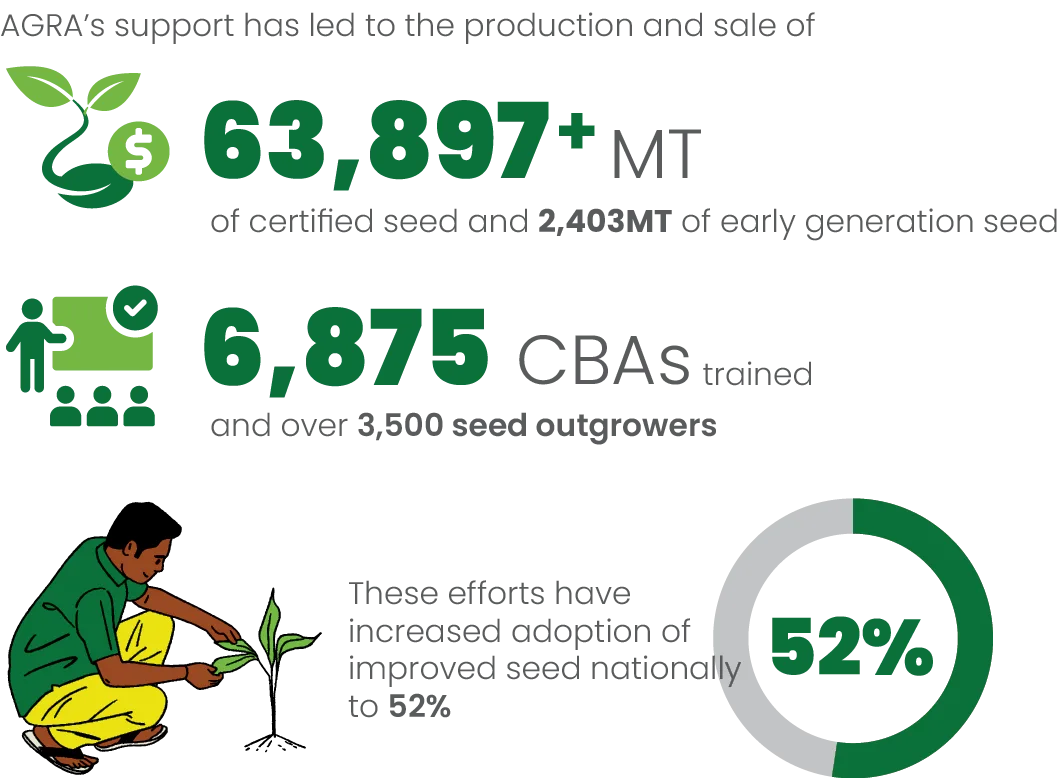SPOTLIGHT
Strengthening Resilience and Market Competitiveness through Quality Seed Access in Nigeria
Access to good quality seed is a cornerstone of resilient, productive, and competitive agriculture. In Nigeria, AGRA and partners have been instrumental in transforming the seed system—supporting farmers not just to withstand shocks like climate change, but to thrive in competitive markets.
For decades, Nigeria’s formal seed system reached only a fraction of smallholder farmers. But since 2007, AGRA has worked in partnership with the National Agricultural Seeds Council (NASC) and private sector actors to overhaul the system—from upstream policy reform to last-mile delivery.
A key innovation was the Seed Codex system, enabling authentication and traceability for over 9.3 million seed packs. This has increased farmer trust and reduced counterfeits, while new laws like the Seed Act of 2019 and PVP Act of 2021 have enhanced market protection and breeder incentives. These reforms position Nigeria as a leader in seed policy on the continent.
But the transformation is not only institutional. Amina Micah, a smallholder farmer in Kaduna State, saw her maize yield jump from 1.5MT/ha to 5.6MT/ha after adopting improved seed through AGRA’s Value Kit initiative. Like thousands of others, Amina was supported by community-based advisors (CBAs) trained under AGRA’s last-mile delivery model, which has shortened the average distance farmers travel to access inputs from 20 km to just 11 km.
AGRA’s support has led to the production and sale of over 63,897MT of certified seed and 2,403MT of early generation seed, while training 6,875 CBAs and over 3,500 seed outgrowers. These efforts have increased adoption of improved seed to 52% nationally, boosted the capacity of seed companies by 30%, and helped farmers like Amina break the cycle of low yields and low incomes.

With new investments under Strategy 3.0, AGRA and partners are scaling these results—positioning quality seed as both a resilience tool and a competitive market advantage. Nigeria’s seed sector now serves as a model of how integrated investment—policy, institutional capacity, private sector engagement, and community-level delivery—can build systems that are inclusive, resilient, and growth-oriented.
